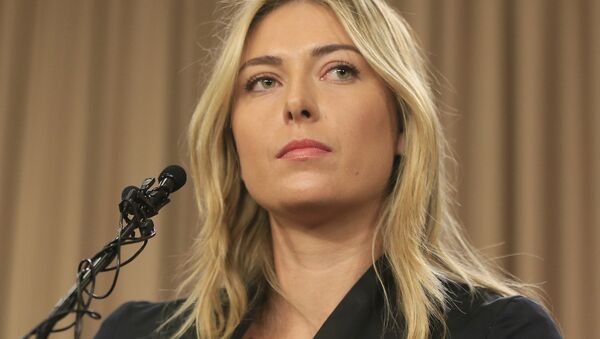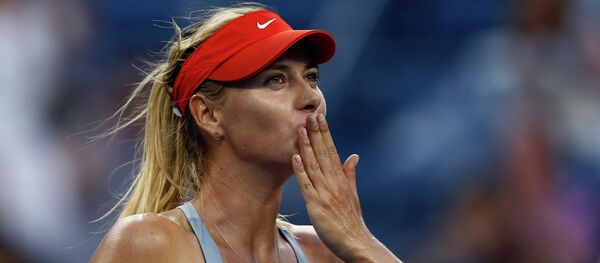Sharapova will not be allowed to participate in 2016 Olympic Games in Rio, according to the International Tennis Federation. According to the ITF, the ban will be back-dated to January 26.
"An Independent Tribunal appointed under Article 8.1 of the 2016 Tennis Anti-Doping Programme has found that Maria Sharapova committed an Anti-Doping Rule Violation under Article 2.1 of the Programme and as a consequence has disqualified the affected results and imposed a period of ineligibility of two years, commencing on 26 January 2016," the ITF said in a statement.
Maria Sharapova said that she will appeal the two-year disqualification, according to her Facebook page. The athlete added that the ITF had initially requested a four-year ban.
"While the tribunal concluded correctly that I did not intentionally violate the anti-doping rules, I cannot accept an unfairly harsh two-year suspension. The tribunal, whose members were selected by the ITF, agreed that I did not do anything intentionally wrong, yet they seek to keep me from playing tennis for two years. I will immediately appeal the suspension portion of this ruling to CAS, the Court of Arbitration for Sport."
A number of Russian top athletes besides Sharapova have failed a drug test for meldonium.
Meldonium is used in Eastern Europe and the former Soviet Union to treat heart conditions. The WADA considers the drug to be a metabolic modulator that increases athletes' endurance and shortens post-exercise rehabilitation time.



